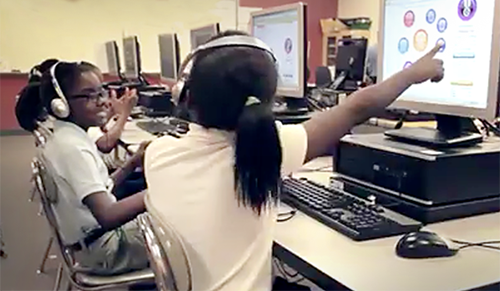Part One of this article discussed factors that contribute to an important issue facing educators: studies show that up to 90% of what students are taught in school may be forgotten in as little as 30 days.

In his book, Why Don’t Students Like School, Daniel Willingham discusses how humans have evolved a way to get around limitations in working memory capacity. Through repeated practice, our brains turn procedures into loops that become automatic and are stored in our long-term memory. Only when skills become automatic can they can be called upon and executed without taxing our working memory.To comprehend how and why students have such a low rate of retention—and how we can prevent it—we must recognize that new learning builds upon a scaffolding of old mastery, and nowhere is this more critical than in mathematics.
“Each unique module on the First In Math site is specifically designed to provide automaticity in the basics—at each level. With their skills stored in long-term memory, students can build upon that mastery, and find new approaches to problem solving,” explains First In Math creator Robert Sun.
While educators agree that the best way to achieve mastery is through practice, many of them would also agree that they simply do not have time to supervise that practice. According to Suntex Executive Vice President Nan Ronis, they don’t have to. “First In Math’s robust assessment features make it easy to see whether a student’s foundation of skills is adequate for the current curriculum.”
According to Ronis, scalable assessment tools—such as the FIM Goals Index—make it easy to gauge solidification of the scaffolding children have established by a certain point in time. Teachers can then interact with their students, if needed, and offer a risk-free way to quickly fill in any missing skills through targeted practice activities on the First In Math site.
The site also provides students with individualized MY GOALS, TEAM GOALS and SCHOOL GOALS pages that encourage independent review and motivate students to ‘level-up’ within the program. “Self-assessment is very effective once children comprehend that they need to build upon each skill they learn, explains former teacher and current FIM Implementation Specialist Monica Patel.
“In this, educators and parents must play a larger role,” says Patel. It is our duty to constantly remind students that their job is to become problem-solvers, and not just be memorizers of facts for the short term. It is important that we show children how each little achievement today will help them succeed in an even bigger way tomorrow.”